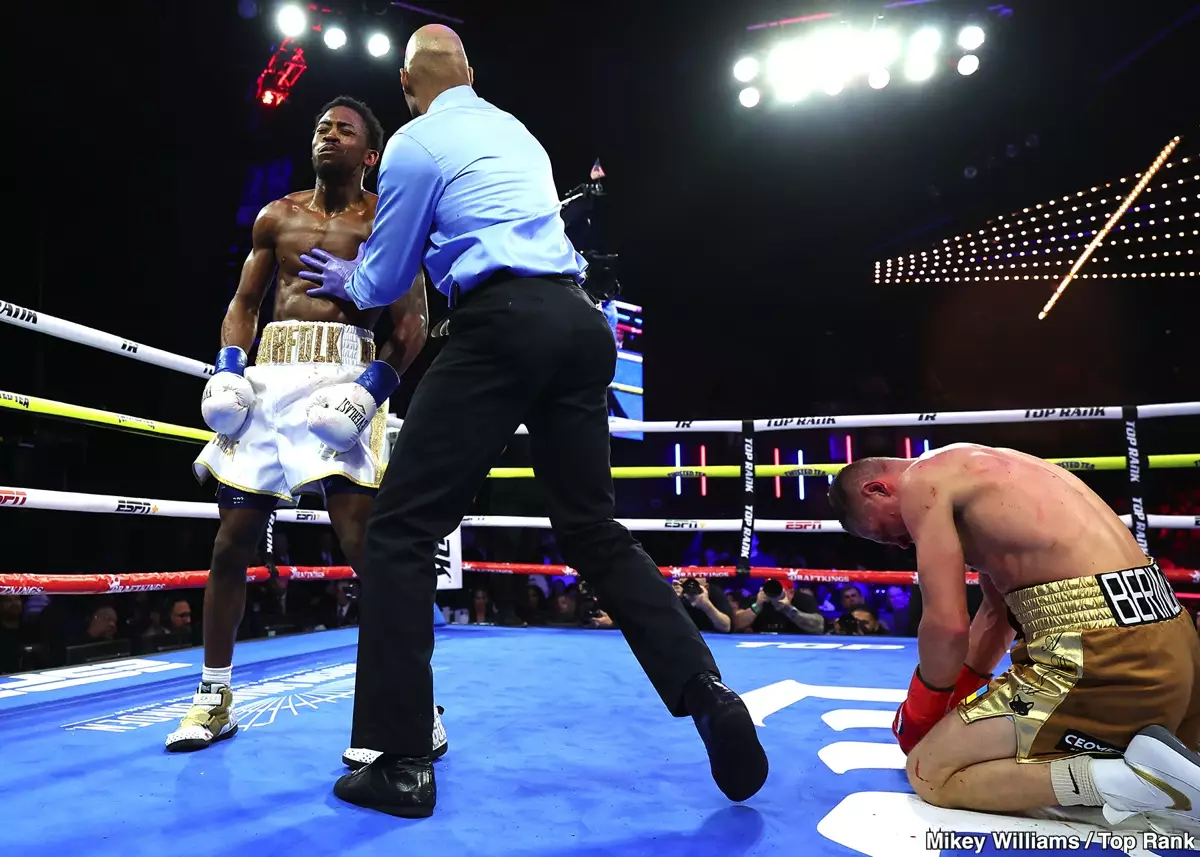In the realm of sports, particularly boxing, the concept of fighting friends can often lead to immense public intrigue and speculation. Fans are typically eager to witness bouts that have personal history, as they add an emotional layer to the athletic competition. Throughout history, there have been notable examples of fighters who were friends but became opponents in the ring, such as Simon Brown and Maurice Blocker. They engaged in a fierce welterweight title match in 1991, while legendary fighters Muhammad Ali and Jimmy Ellis also showcased their skills against each other despite their friendship. This spectacle pulls fans in deeper, as the stakes aren’t just about titles but the relationships that may be strained in the process.
Among the current crop of fighters, Keyshawn Davis stands out for his firm refusal to consider a clash with his close friend, Shakur Stevenson. Following his impressive triumph over Denys Berinchyk for the WBO lightweight title, Davis has made it abundantly clear that he will never step into the ring against Stevenson, regardless of the circumstances. In a candid conversation with The Ring, Davis expressed his frustration with the incessant inquiries surrounding a potential showdown. “It’s honestly getting sickening,” he proclaimed. Davis and Stevenson’s understanding dates back to their amateur days, a reality that intensifies the commitment Davis has to preserving their friendship over professional accolades.
The Market’s Desire Versus Personal Ethics
From a commercial perspective, the boxing world thrives on the excitement generated by tantalizing matchups, especially those involving undefeated fighters like Davis (14-0, 9 KOs) and Stevenson (22-0, 10 KOs). With Stevenson hailed as a top contender in the lightweight division and Davis establishing himself prominently after claiming a world title, the demand for their bout seems inevitable among fans. However, Davis’s resolute stance highlights a significant narrative often overlooked in the sport: ethical considerations in professional boxing. No financial incentive or public pressure will sway Davis to betray his values and challenge someone he considers family.
Though the prospects of Davis and Stevenson colliding in the ring remain nonexistent, both fighters have a plethora of other exciting opportunities that promise to invigorate the boxing scene. For Davis, a rematch with Andy Cruz — his former amateur adversary who has a history of defeating him — could entice audiences and provide a rich narrative. On the other hand, Stevenson will also have his own challenges ahead, like his upcoming bout against Floyd Schofield. Both fighters have paths that could further solidify their legacies, irrespective of their unwillingness to fight one another.
Ultimately, the situation surrounding Keyshawn Davis and Shakur Stevenson encapsulates the broader theme of camaraderie in sports. Their dedication to maintaining their friendship against external pressures sheds light on a perspective many may overlook amid the clamor for high-stakes matches. In boxing, where rivalries often rule, sometimes prioritizing personal relationships over fame is the true mark of integrity and sportsmanship. As fans of the sport, we must respect their choices and celebrate the plethora of exciting battles that lie ahead for both fighters, as they continue to contribute to the vibrant tapestry of boxing.


Leave a Reply